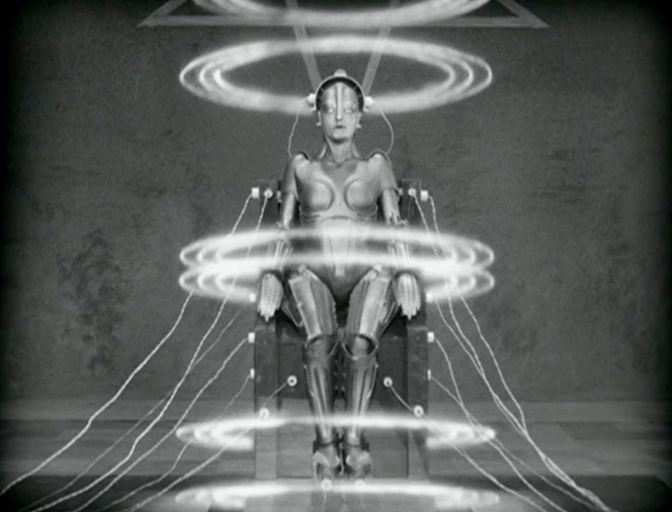
Screenshot showing Maria turned into the machine man, from the 1927 film by Fritz Lang, “Metropolis.”
Robots and Science Fiction
I’ve always been a fan of robots. I grew up watching after school, Robby the Robot, Lost in Space B-9 Robot, and many others. Science fiction is a thinking man’s wondering about the future and what could be possible.
There seem to be two underlying themes, one where the future is improving, progressing, and upbeat, however dark it at times appears. A second theme is where the future is oppressive and dire and is almost a horror story. Of course, there are variations in both plots and protagonists.
“The Expanse” by James S. A. Corey is one of the best I have read and seen. It consists of nine novels and nine short stories written over ten years. It is a space opera set in the future, where interplanetary travel is routine. The best part is the analogies to current life. There are three major political factions, the Martians, the Belters, and the Earth’s United Nations. There are aliens, wormholes, many new planets, authoritarian governments, wars, fantastic organic robots, successes and failures, a return to man colonizing the discovered worlds, and loss of the means to use all the tremendous ‘robots’ to get back home.
Another great ‘robot’ book is the Bobiverse series by Dennis E. Taylor. This is a hilarious look at the future, with a human mind frozen to preserve it, transferred to a computer to resurrect it in the future, and then sent out into the universe as a Von Neumann (self-replicating) probe.
For complex reads, “The Three-Body Problem” by Liu Cixin, along with its successors “The Dark Forest” and “Death’s End,” are outstanding. This is a fictional take on Earth’s past, present, and future after encountering an alien race from a three-body star system. It explores political unrest and intrigue from a Chinese perspective, the evolution of an alien race through many millennia of sporadic trial and error at life and society due to the instability of the three-body solar system. The perspective of another cultural view of conflict and resolution is quite interesting.
The ability to imagine new frontiers and challenges and then find ways to surmount difficulties while keeping an ethical perspective is fascinating. It lets one play out scenarios and understand different points of view. One’s own internal moral compass can be questioned or reinforced through the storyline. The ambiguities are explored without the need to accept or reject the concepts. These are some of the features of science fiction that I like. Space Operas, in particular, typically employ these concepts.